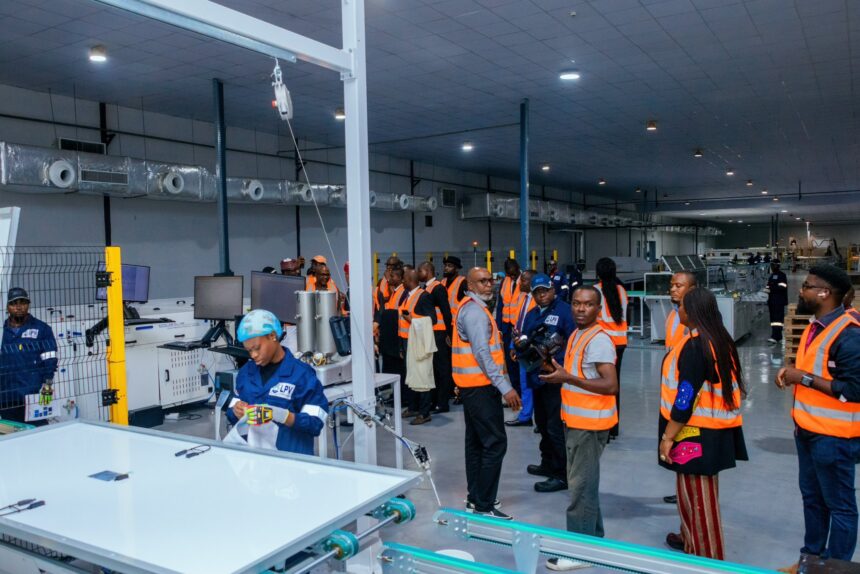Imagine an Africa where clean energy flows freely across borders, powering homes, businesses, and dreams. That’s no longer just a vision — it’s happening right now. In a groundbreaking achievement, Nigeria has exported its first batch of locally manufactured solar panels to Ghana, marking a major milestone in President Bola Tinubu’s clean energy drive.
This development is transforming Nigeria into a renewable energy powerhouse. Gone are the days when the country relied heavily on imported solar technology. Thanks to a strong partnership between Levene Photovoltaic Technologies (LPV) and the Rural Electrification Agency (REA), the first shipment of Nigerian-made solar panels has landed in Accra. This export isn’t just a commercial success — it’s a bold declaration that Nigeria is ready to lead Africa’s clean energy revolution.
Under President Tinubu’s administration, efforts to reduce imports and boost local production have intensified. Nigeria’s solar PV manufacturing capacity has surged from 120MW to an impressive 650MW in a short period. Experts describe this as a “leap forward” that demonstrates the potential of homegrown innovation to compete globally.
The impact goes far beyond trade. By strengthening local manufacturing, Nigeria is cutting dependence on foreign suppliers and promoting self-reliance in renewable energy. According to the REA, the country can now meet its domestic energy needs while exporting sustainable solutions to neighbouring nations like Ghana. The administration’s aggressive renewable energy agenda is repositioning Nigeria as both a producer and exporter of clean technology. This export milestone follows a series of initiatives, including major investments in solar infrastructure and new policies to encourage local innovation.
Here’s what this means for Nigeria and the region:
- Job creation: Thousands of new opportunities are emerging in manufacturing, technology, and logistics, empowering young Nigerians and local communities.
- Economic growth: Reduced import dependence keeps more revenue within the economy, boosting development and strengthening the naira.
- Regional leadership: Supplying Ghana — and potentially other African countries — cements Nigeria’s position as the continent’s clean energy hub.
- Global recognition: The move signals Africa’s growing role in the global fight against climate change.With solar imports valued at over N242 billion in the first half of 2025 alone, Nigeria’s pivot to local production couldn’t be more timely. Now, as an exporter, the country is rewriting the narrative. Analysts believe this breakthrough will inspire other African nations to invest in renewable energy, fostering a continental wave of innovation and cooperation.
President Tinubu’s clean energy vision is gaining momentum, underscored by recent approvals such as N70 billion for solar power projects in universities. If the current trajectory continues, Nigeria could soon emerge as a key global player in the renewable energy sector.
From Lagos factories to Accra rooftops, this solar export marks more than progress — it’s proof that Africa is rising through resilience, innovation, and a shared commitment to a sustainable future.
Source: https://thetrumpet.ng/











